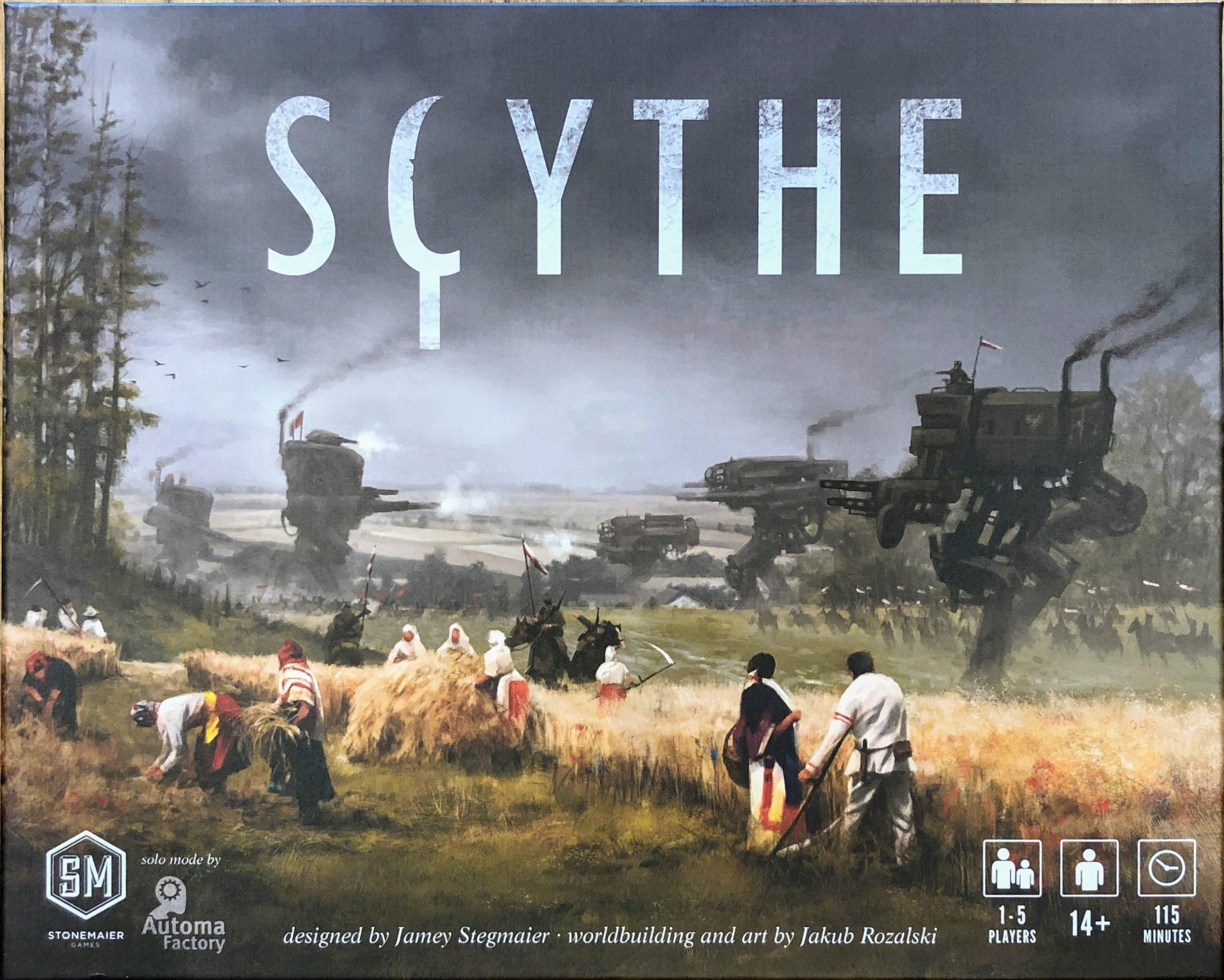Scythe Board Game Review
Overview:
Name of the game: Scythe
BGG Weight: 3.44 / 5
Year published: 2016
Publisher: Stonemaier Games
Designer: Jamey Stegmaier
Number of players: 1-5
Playing time: 90-115 minutes
Game category/theme: alternate history, economic, territory building, war
Board game mechanics: Card Play Conflict Resolution, Contracts, End Game Bonuses, Force Commitment, Grid Movement
Ratings:
Strategy: 9.2
Complexity: 3.8
Player Interaction: 7.9
Replayability: 9.6
Game Rating: 9.0
Cost: 7.0
Calculations:
Weight Rating: (3.8 + 9.2) = 13.0
Playability Rating: [(9.6 + 7.9 + 9.0) – 3.8] = 22.7
Play Rating Score: (13.0 + 22.7) * 2 = 71.4
Value Rating: 71.4 / 7.0 = 10.2
Final Score Rating: 71.4 + 10.2 = 81.6
Review:
Scythe is a beautifully designed and well-balanced game that offers a deep and rewarding experience for both casual and serious gamers. The alternate history theme adds an element of intrigue to the gameplay, as players compete to control territory and resources, build structures, and engage in combat with their opponents. The game’s mechanics are easy to learn but provide ample strategic depth, thanks to the variable player powers and the different paths to victory. The replayability is high due to the many different combinations of factions and player mats, as well as the random encounter cards that add a level of unpredictability to each game. The artwork and components are top-notch and help to immerse players in the world of the game. Overall, Scythe is a must-play for fans of economic and territory building games.
Scythe offers both solo and cooperative play options. The solo mode features an automa opponent that provides a challenging and engaging experience. The cooperative mode allows players to work together to complete objectives and overcome challenges.
If you enjoyed Scythe, here are 10 other games you might also enjoy:
- Terraforming Mars: A strategy game that tasks players with terraforming Mars by managing resources, building infrastructure, and researching technology.
- Gloomhaven: A cooperative dungeon-crawler that offers deep tactical gameplay and a rich storyline.
- Root: A game of asymmetric warfare where players control different factions vying for control of the forest.
- Twilight Imperium: A grand space opera game that sees players competing for control of the galaxy through politics, trade, and warfare.
- Brass: Birmingham: A economic game set in the Industrial Revolution that tasks players with building networks and factories to drive the growth of their industries.
- Spirit Island: A cooperative game where players control spirits defending an island from colonial invaders.
- Dominion: A deck-building game where players compete to build the most efficient deck and earn victory points.
- Pandemic: A cooperative game where players work together to stop the spread of deadly diseases across the globe.
- Power Grid: An economic game where players compete to build the most efficient power grid and supply electricity to the most cities.
- Agricola: A worker placement game where players must manage their farm, grow crops, and raise livestock to earn points and win the game.
This review was provided by Open Source Artificial Intelligence programs. It uses a series of complex statement to have AI programs amalgomate their databases to produces information on board games. These reviews are completely unedited output from the AI bots.

